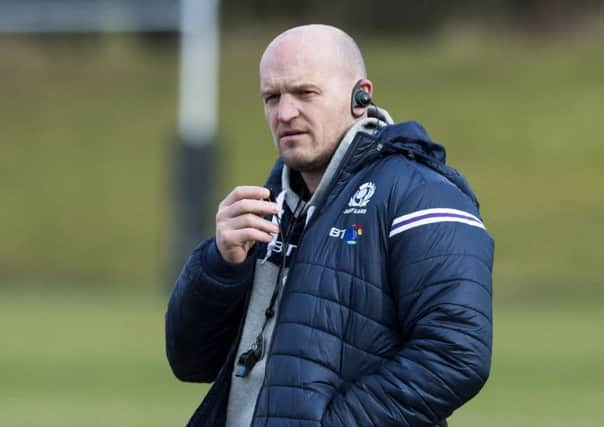Allan Massie: Stars need time off to hit heights on world stage


Jim Telfer isn’t there either, nor are Douglas Elliot, Arthur Smith and John Rutherford. Some Scots will be surprised to find Jim Greenwood there, even though he captained Scotland for three or four seasons when we emerged from the black pit of the early Fifties, and was outstanding on the 1955 Lions tour of South Africa, when he played in all four tests, scoring two tries. But I guess Jim is there because of his subsequent career partly as a coach and author, which earned him fame almost everywhere that rugby is played, except perhaps at home in Scotland.
More to the immediate point, O’Gara, just returned from a coaching trip to New Zealand, opined that Ireland could win next year’s World Cup. “Could” of course is one thing, “might” or “may”, something else. He did, wisely, go on to say that Ireland or any country would lose a series against New Zealand. Nevertheless the All Blacks might be beaten in a one-off Cup match, and Ireland had as good a chance of doing that as anyone.
Advertisement
Hide AdAdvertisement
Hide AdThis is probably true. Australia and South Africa both have good World Cup records (as Ireland don’t), but one suspects that their repeated, often humiliating, defeats in The Rugby Championship have taken their toll, neither really believing they can beat the All Blacks. England and France both have the wherewithal to win the World Cup, but both suffer from the structure of their home game. In France it’s not only the rivalry between the owners of the Top 14 clubs and the FFR that handicaps them. There’s also the fact that so many of their best clubs have an excessive number of star foreign players. As with English football, it often seems that the home-grown players are content to abdicate responsibility to the high-earning imports.
England have the resources to win anything any time, and often the players capable of doing so. Yet, in view of these resources, their World Cup record is rather dismal. Now, looking a year ahead, there are two big question-marks dangling over England. The first concerns their coach, Eddie Jones, successful at first, less so subsequently, and for English supporters the worry is that this has been the pattern of Jones’ career. The second is whether the club-owners will co-operate with the RFU, and act in the interests of the national team. Essentially this means ensuring that their players are treated like thoroughbreds rather than cart-horses, and given adequate time off. It will be surprising if this happens.
It’s different in Ireland. While it was good to see Glasgow beat Munster at Scotstoun last weekend (though if you score three tries in the first half, you should surely contrive to get a fourth and come away with a bonus point), one couldn’t but reflect that Munster were without Keith Earls, Conor Murray, C J Stander and Peter O’Mahony, all not yet given permission to play by the IRFU and Ireland’s coach, Joe Schmidt. With the decree having gone out that to be selected for Ireland you must play your club rugby in Ireland, Schmidt has a degree of control over his players and their workload that every other national coach in the northern hemisphere must envy. This is why O’Gara may be right: Ireland have a better chance of beating New Zealand and winning the World Cup than any of the other Six Nations Countries.
In contrast neither Glasgow nor Edinburgh has held fit international players back. Presumably Gregor Townsend hasn’t asked them to do so, and trusts Dave Rennie and Richard Cockerill to manage their stars’ workload sympathetically, and ration their appearances. Good relations between Townsend, Rennie and Cockerill are important, and one must recognise that the success of their club is the first interest for both Rennie and Cockerill. Nevertheless, since by far the greater part of Townsend’s 23-strong matchday squad will be drawn from the two Scottish clubs, it is surely vital that international players are given a fair number of weeks off. This is all the more important because, unlike Joe Schmidt, Townsend has no control over some of his players, since the SRU isn’t strong enough to impose the sort of self-denying ordinance that is in place in Ireland. The players who come immediately to mind are Greig Laidlaw at Clermont-Auvergne, Finn Russell at Racing 92, Richie Gray at Toulouse, Sean Maitland at Saracens and David Denton at Leicester. All Gregor can do is exercise his charm and politely ask the clubs not to drive their Scots too hard.